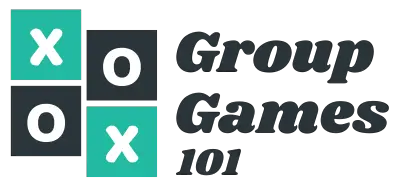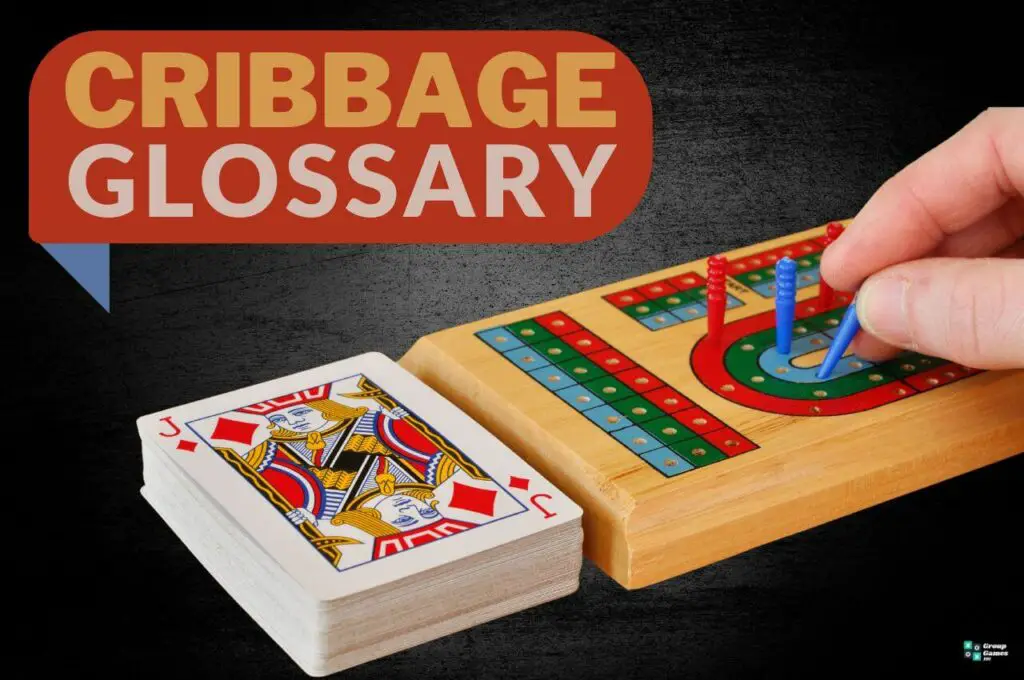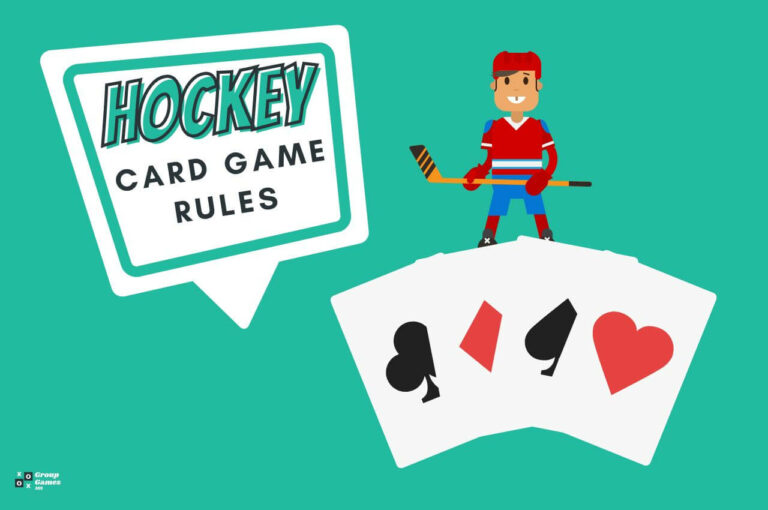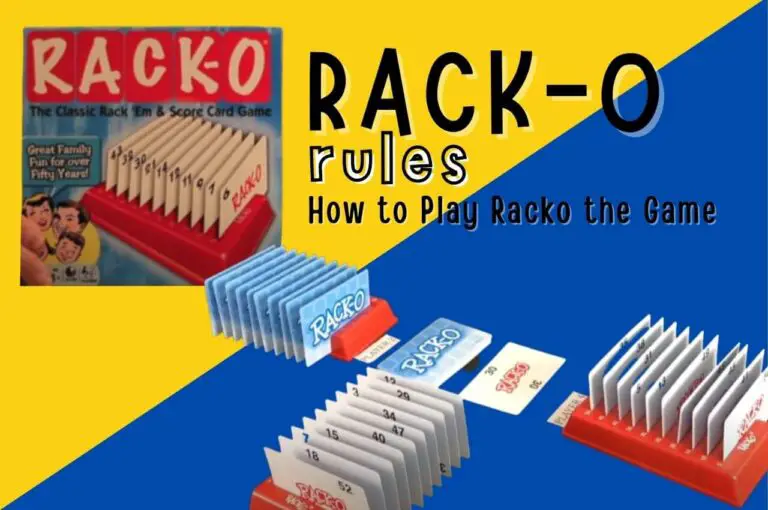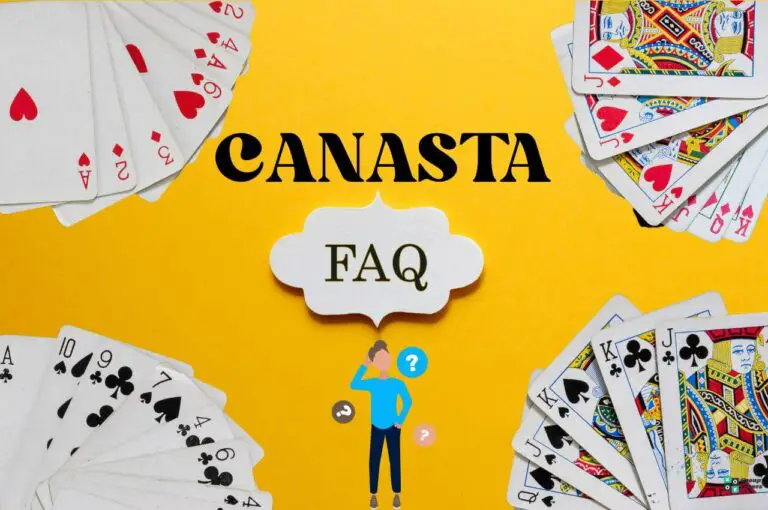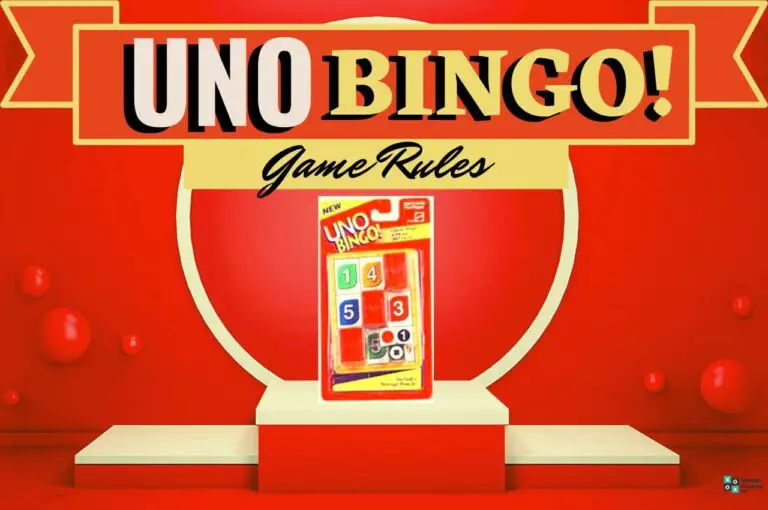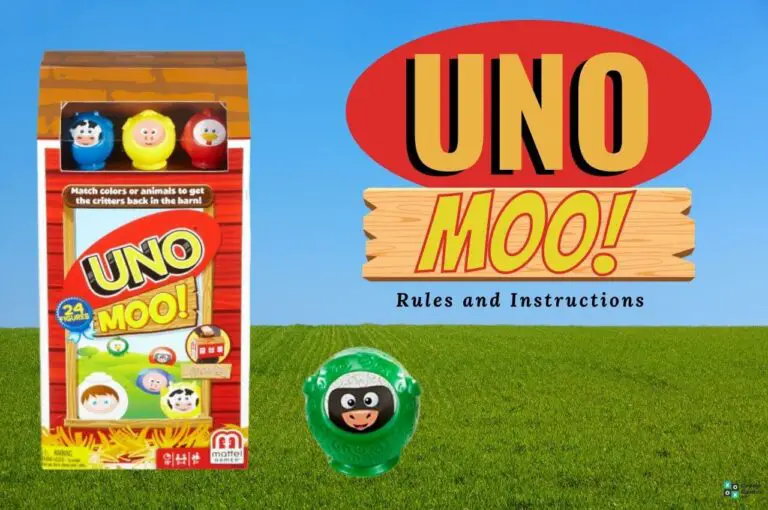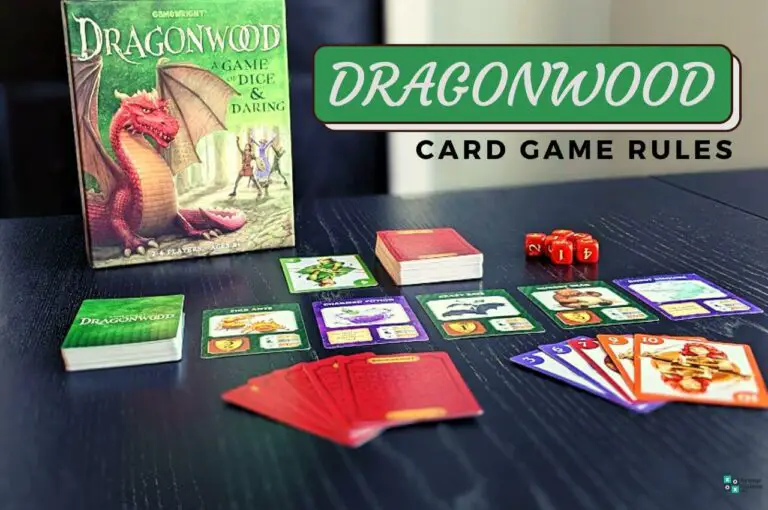If you’re new to the game, getting your head around all the different cribbage terms can be a little confusing, if not completely overwhelming.
Of course, that defeats the whole point of what is supposed to be a fun and entertaining card game. That’s why we put together this comprehensive glossary to help you understand all the terms you’ll come across while learning the cribbage rules so that you can enjoy the game to the fullest.
Related: Interested in playing Cribbage online? Check our Cribbage online game we built.
All Cribbage Terms

Addition Method
A term that describes the technique of adding all the points in your hand to the average crib to get the best discard.
ACC
The American Cribbage Congress, North America’s governing body for cribbage
Average Crib
The average crib is the average value of the two cards (crib) that you discard.
Break Card
A break card -also known as an out card- is a card that is far removed from the others in the run. So, for example, if you have a 3,4,5 and 10, the 10 would be the break card, just as the King would be in a run of 4,5,6, King.
Bust Hand
A bust hand in cribbage is any hand that scores no points
Canadian Doubles
A variation on standard doubles cribbage in which the dealer and the opponent on their left get 10 cards. They then choose four cards to keep, give four cards to their partner, and discard the other cards to the crib.
Case
The term case refers to the fourth card of a suit when the other three cards have already been revealed.
Consolation Tournament
In competitive cribbage, a consolation tournament is held among players who either don’t make the main tournament playoffs or who get knocked out of the playoffs in the first early rounds.
Crib
The crib is a set of four cards formed by each player discarding two cards each. The dealer counts this as an extra hand once the deal is done.
Cribbage to Lose
Also known as anti-cribbage or reverse cribbage, playing Cribbage to Lose means exactly that: You play to lose rather than win
Cut
As in most popular card games, to cut means to cut the deck before play.
Cut Card
The Cut Card is the card that the dealer turns over after the other player cuts the deck at the beginning of the game. The Cut Card is used by players to score their hands.
Doubles
Refers to a variation on cribbage in which you play with a partner against an opponent and their partner.
Double Run
A run of three or more cards that contains a pair. A 3-card double run is worth 8 points, whereas a 4-card run counts as 10 points.
Double Skunk
A game in which the losing player scores 60 points or less.
See also: Skunk
Edge Cards
Both an Ace-2 and a Queen-King combination are known as Edge Cards
Endgame
The Endgame is the ending part of the game, usually commencing with the penultimate deal in the game.
False Claim of Game
A False Claim of Game is made when a player takes more points than they should and puts their peg into the Game Hole.
If a False Claim of Game is made, the player who overplayed has to go back by the number of pegs they went over while their opponent gets those pegs.
In competition play, a 15-point penalty is given to the player who overplayed.
Fifteen
During play, if the count of your card totals 15, you score two points
First Street
First Street refers to holes 1-30 on the cribbage board.
See also:
Second Street
Third Street
Fourth Street
Flush
As explained in our Cribbage FAQs, a flush is any four cards of the same suit in a single hand or crib.
Fourth Street
Fourth Street is the name given to the 91st to 120th hole on the cribbage board.
Game Hole
The last hole on the cribbage board is known as the Game Hole, as once you land here, you win the game.
Go
The term ‘Go’ is used in cribbage to describe a situation when the score is less than 31, and you can’t play any more cards.
Go Out
To Go Out means to reach the game hole and win the game.
Grand Slam
In competitive cribbage, earning a Grand Slam means you win every game of the tournament.
Hand
The term ‘hand’ refers to the cards that each player is dealt.
His Heels
If a Jack is cut as the starter card, the dealer will score ‘two (points) for his heels’
Hauling Lumber
If you’re accused of hauling lumber in cribbage, this means you’re being accused of cheating by pegging more holes than you’re entitled to.
His Nobs
‘One (point) for his nobs’ is awarded to a player when they have a Jack of the same suit as the cut card.
Ladder
A form of competitive play in which players work their way to the top of the ladder by winning against players who rank higher than them.
Last Card
If you play the last card of the deal, you’re awarded one point.
Lead
To lead in cribbage means to play the first card. It can also refer to the first card itself, the Lead Card.
Magic 5
If you get a two-card combination with a pip value of 5 (Ace-4 or 3-2), it’s known as a Magic Five. This
Magic 11
A combination of two or three cards with a total pip value of 11.
Magic 16
A combination of two or three cards totaling 16.
Morgan’s
Morgan’s, or Morgan’s Orchard to give it its full name, is a term given to the scoring of four points with two pairs.
Muggins
An optional rule in which players can claim points earned by their opponent if that opponent doesn’t claim them for themselves.
Nineteen
It’s impossible to score nineteen in cribbage, so if a player declares that they have nineteen, they’re making a joke that they haven’t scored any points with their hand.
Overpegging
The process of pegging more points than you should. Though it can be done deliberately as a form of cheating, sometimes overpegging can be done purely by accident.
Pegging
To Peg technically means to record your score by moving your pegs on the cribbage board, though the term is commonly used to describe the whole process of playing a hand and scoring points.
Pegging Out
To Peg Out in cribbage is to move your peg into the Game Hole and win the game.
Pip Value
The value of the card or a series of cards. An Ace has a pip value of one, a 5 has a pip value of five, and so on. As an example, a hand with an Ace, 5, and 7 would have a pip value of 13.
Pone
You’ll hear the word Pone a lot in cribbage. It’s the name given to the player who isn’t the dealer.
Raggedy Ann
A score of 13 points made a hand of 8-7-6-Ace-Ace
Raggedy Andy
A score of 11 points was made from an 8-7-6-2-2 hand.
Renege
To renege means to fail to play one or more cards that you could have played without taking the score over 31.
Run
Three or more cards in sequential numerical order, for example, 2-3-4 or Ace-2-3.
Skunk
A skunk is a winning score that is at least 31 points more than your opponent.
Starter Card
Another name for the Cut Card.
Second Street
Just as First Street refers to the 1st – 30th hole on the cribbage board, Second Street is the name for holes 31 – 60.
Stink Hole
The 120th hole on the board. Finishing the game in this hole means you were only one point away from winning which, let’s face it, really stinks.
Ten Card
Sometimes known as a ‘tenth card,’ a Ten Card is any card with a pip value of 10 such as 10, Jack, King, or Queen.
Third Street
Third Street refers to the 61st – 90th holes on the cribbage board.
Touching Cards
Cards that are in sequential order such as Ace-2, 4-5, or 10-Jack are known as touching cards.
Up Sticks
Sometimes shortened to just ‘sticks,’ the term refers to a draw at the end of a hand.
Looking for a fun alternative to regular cribbage? Here’s our complete tutorial on how to play the popular game of Hand, Knee, and Foot.
